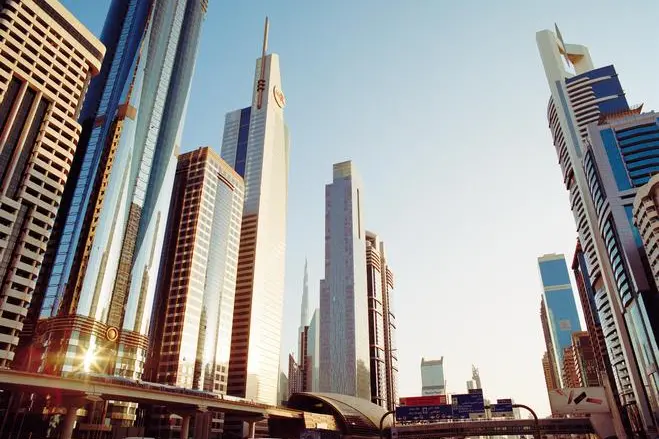PHOTO
The property market in Dubai may not see huge price falls this year despite the tens of thousands of new homes joining the market.
Property experts suggest that home sale prices will either ease or rebound over the next several months due to positive market sentiment and an expected decline in new project launches.
“Prices could see a rebound for reasons related to a possible end of a correction cycle and an emerging positive sentiment closely related with the expected improving economy going forward,” Haider Tuaima, head or real estate research at ValuStrat, told Zawya.
Property prices in the UAE have been falling since 2014 due to a combination of factors, such as a huge supply glut, negative investor sentiment, low oil prices and a strong US dollar. Since the end of 2015 alone, apartment and villa sales prices in Abu Dhabi declined by 29 percent and 11 percent, respectively.
The government has taken steps and introduced reforms to address the huge glut in the real estate market and boost investor appetite. In 2019, a special committee was formed to curb new project launches and create a more sustainable balance between supply and demand.
Still, at least 39,000 new flats in residential towers and 10,600 units in villa communities are expected to be delivered this year and further inflate Dubai’s housing supply, according to Asteco’s estimates. The actual number of units with a scheduled completion date in 2020, based on initial research by Property Finder, is closer to 90,000.
Despite the high volume of anticipated units, sale price declines in Dubai are likely to ease this year, as development costs are approaching the lowest practical level, according to Asteco. Since the 2008 peak, Asteco calculated that sale prices of one-bedroom residential units have registered a 51 percent decline, while bigger homes posted a 47 percent drop.
“While rental rates are expected to contract further, sale price declines are likely to ease in 2020, particularly for newly launched projects, as development costs are approaching the lowest practical level. Secondary property prices are, however, expected to record additional drops,” Asteco said.
Besides, Asteco noted that, similar to the previous years, a number of real estate projects could face some delays this year, so the actual delivery of fresh housing supply could spill over into 2021.
“We can also expect to see fewer new projects this year, as the government has stepped in to regulate project launches,” Firas Al Msaddi, CEO of fam Properties, said earlier.
More on housing supply
A total of 31,000 residential units were handed over in Dubai last year, comprising approximately 23,600 apartments and 7,400 villas, according to Asteco. A huge chunk of the completed units was located in communities such as Damac Hills, Dubai Hills Estates and Akoya Oxygen.
In Abu Dhabi, developers delivered 5,200 apartments and 1,400 villas last year. Most of the upcoming supply in the UAE capital will be located in Reem Island, Al Raha Beach, Has Island and Saadiyat Island.
(Writing by Cleofe Maceda; editing by Seban Scaria)
Disclaimer: This article is provided for informational purposes only. The content does not provide tax, legal or investment advice or opinion regarding the suitability, value or profitability of any particular security, portfolio or investment strategy. Read our full disclaimer policy here.
© ZAWYA 2020





















